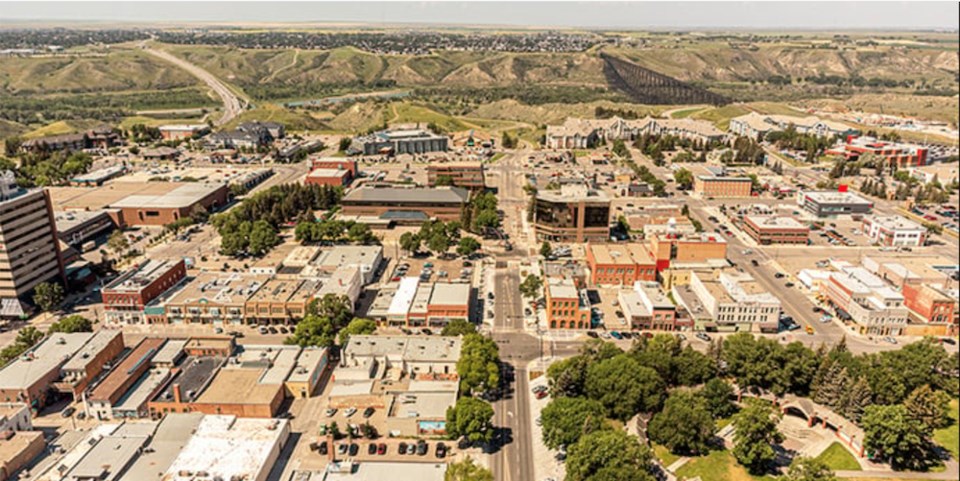Commercial real estate in Lethbridge is set to revive this year as investors adjust to the new interest rate environment, and take a closer look at which opportunities make sense.
“While high construction costs and increased interest rates have caused a slowdown in our market, we are starting to emerge from a holding period into one of new development,” said Jeremy Roden, executive vice-president in the Lethbridge office of commercial brokerage Avison Young.
Building permit values increased 40 per cent in Lethbridge in 2023, according to city statistics, setting the stage for significant construction activity in 2024.
The shift is driven by investors anticipating higher costs by evaluating properties based on existing per-square-foot value against the cost of new construction and weighing this against lease rate increases and the overall economic trajectory of the community.
Retail rents fell over the past year as part of a post-pandemic adjustment that saw tenants seek out newer space, Avison Young reported in a Jan. 16 review of the market, shifting the overall average asking rent down in the final quarter of 2023.
“With less new builds available for lease, the overall average rate declined,” Avison Young reported. “However, with low retail vacancy and high demand, the benchmark for new space, particularly drive-through restaurants, has never been higher and will likely continue for the near future.”
With an ongoing influx of new residents to smaller centres, Avison Young also anticipates more national tenants moving into markets such as Lethbridge, Coaldale, and the Crowsnest Pass to serve the growing population.
Rents for industrial and office properties increased over the past year, led by six per cent growth in the industrial lease rate to $9.07 per square foot. Constraints on space promise a further 5 per cent increase in rents this year, steadily pushing them towards $10 per square foot.
The increases are taking place even as vacancies rise, hitting four per cent at the end of 2023 from 3.8 per cent a year earlier.
“Despite the slight uptick in vacancy, we are expecting a shortage of space in the next 18-24 months as new developments have been slower to come to market and the majority are preleased,” Avison Young reported.
The slowdown in construction is directly attributable to higher costs, and will further exacerbate the local shortage of new premises. Avison Young recommends industrial tenants plan two to three years ahead of time for space that will meet their needs, noting that the timeline is “conservative” for occupiers with specialized needs.
Office investment has also been impacted by high construction costs, slowing new construction as well as renovations. A basic office build-out is now double what it was four years ago, meaning uptake of office space has shifted to non-traditional tenants who can repurpose existing space for their purposes, not always with full build-outs.
Daycares and education have been prime examples, contributing to a 180-basis point drop in office vacancies in 2023 to 10.6 per cent – well below Calgary and on par with Vancouver.
While economic headwinds will continue to present challenges in 2024, Avison Young is optimistic.
“Even though market outlook has not significantly improved, investors are adjusting their expectations accordingly,” it reported. “While we may not see the immediate returns of the real estate boom of 2022, investments in growth markets such as Lethbridge continue to be strong.”



